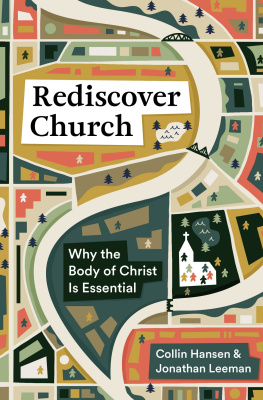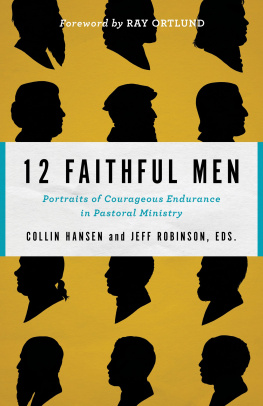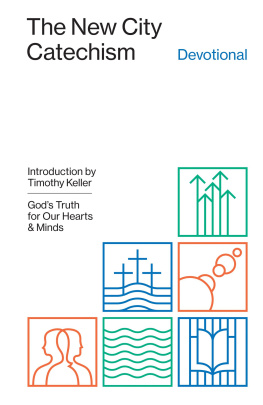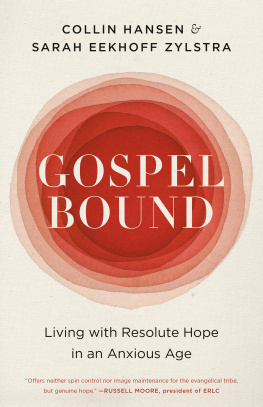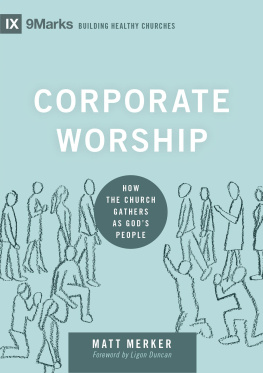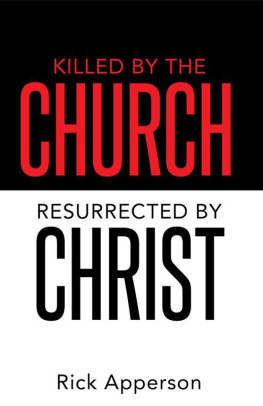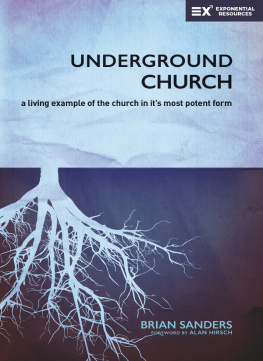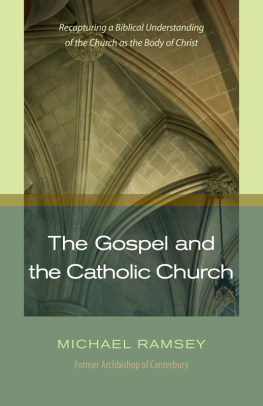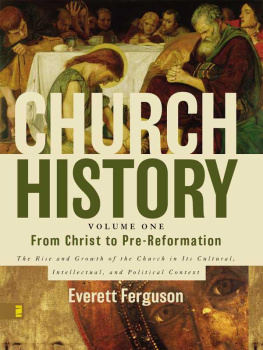Table of Contents
Landmarks
Jonathan Leeman
In college, I spent half a year in Brussels, Belgium. During that time, my United States passport expired. So I traveled to the U.S. embassy in the Quartier Royal neighborhood of Brussels. Stepping inside the embassy placed me on American soil.
The embassy bears the authority of the U.S. government. It can say to the government and people of Belgium, This is what the United States requests and what it intends. It can say of people like me, He is one of ours.
Standing at the counter, I handed the clerk my expired passport. He asked me a few questions. He typed a few things into his computer. In no time, I received a new passport affirming that I am a U.S. citizen. The embassy didnt make me a citizen. I was a citizen by birth. But it did officially recognize and affirm my citizenship. It speaks for the United States in a way that I cannot, even though I am a U.S. citizen.
Do Churches Really Have Authority?
Likewise, churches dont make people Christians. We become Christians by the new birth, as we talked about in chapter 2. But churches are embassies of heaven, which Christ has tasked with affirming our heavenly citizenship. Baptists, Presbyterians, and Anglicans might disagree on who exactly makes the pronouncement, whether it is the whole congregation or the elders or bishop acting on behalf of the congregation. But all agree that Jesus has given this authority to churches. Instead of handing out passports, churches baptize and share the Lords Supper.
Christians today dont often think of churches as possessing a God-given authority. Parents? Yes. Governments? Yes. But churches?
In fact, this is what we learn from Jesus giving the keys of the kingdom to churches in Matthew 16 and 18. First, in Matthew 16:1320, Jesus teaches that the keys are used to affirm right confessions of the gospel. Peter confesses whom Jesus is. Jesus affirms Peters answer, promises to build his church, and then, for that purpose, gives Peter and the apostles the keys of the kingdom of heaven (v. 19). What do these keys do? They bind and loose on earth whats bound and loosed in heaven. We dont talk like that anymore, so you might miss the meaning. But think of the keys as being like an embassys authority to formally declare its home governments laws or decrees.
Second, in Matthew 18:1520, Jesus teaches that the keys are used to affirm true confessors of the gospel . He hands the keys of the kingdom to a local church as the grounds for removing from membership anyone whose life and profession dont match. Think of this being like an embassys authority to formally declare who its citizens are.
To summarize, churches possess the keys of the kingdom, which is the authority to affirm on behalf of heaven the what and the who of the gospelWhat is a right confession? Who is a true confessor?
The authority of the keys = the right to declare on Jesus s behalf the what and the who of the gospel: What is a right confession? Who is a true confessor?
Another analogy that might be helpful for understanding a churchs authority of the keys is the work of a courtroom judge. A judge doesnt make the law. Neither does he or she make a person innocent or guilty. But the judge possesses authority on behalf of the government to interpret the law and then render an official judgment: Guilty or Not guilty. So it is with a churchs declarations. Theyre official, representing the kingdom of heaven on earth.
Sometimes churches make wrong judgments, as with ambassadors and embassies, or judges and courts. Still, this is the job that Jesus gives to churches.
What Are the Ordinances? Our Heavenly Passports
How do churches render these official judgments?
First, they do it through preaching, which we talked about in the previous chapter. When the preacher preaches, he binds or looses the consciences of the congregation to his understanding of Gods Word.
Second, churches bind or loose through the ordinances (as in, ordained by Jesus ).
Baptism comes first. Its the front door into church membership. Those who gather in Christs name (Matt. 18:20) baptize people into his name (28:19). Through baptism, we declare, Im with Jesus , while the church affirms, This person is with Jesus . Both parties have something to say.
The Lords Supper follows. Its the regular family meal for members (see Matt. 26:2629). Church membership, in one sense, simply means membership at the Lords Table, since the Supper is how we recognize one another as believers on an ongoing basis. Listen to Paul: Because there is one bread, we who are many are one body, for we all partake of the one bread (1 Cor. 10:17). Partaking of the one bread shows that we are one body. It affirms us as believers. Again, different Christian denominations disagree on what exactly the communion bread represents. But all agree that the Lords Supper is a church meal, by which the whole congregation affirms one anothers membership in Christs body.
Too often, Christians treat the ordinances individualistically. We practice baptism and the Supper at home, at camp, or on overseas tours. Remaining at home through COVID-19 especially tempted people to think this way.
Its true that the New Testament doesnt absolutely restrict baptism to church settings, as seen in Philip baptizing the Ethiopian eunuch (Acts 8:2640). A missionary religion pushing into new territories needs to be able to do this. Yet the normal practice is to celebrate these two ordinances within the church gathering under the churchs watchful care, as when three thousand were baptized into the Jerusalem church (Acts 2:41). Likewise, Paul warns us to participate in the Supper only while discerning the body, meaning the church (1 Cor. 11:29). Then he tells us to wait for one another before taking it (v. 33). This is a church event.
On one occasion when I was taking the Supper with the church, I said to the brothers around me, As we partake, lets look at one another and then hug at the end. I wanted to capture the corporate nature of what we were doing. My friends groaned at my request, but they agreed. So we huddled up, took the Supper, looked at one another, and then hugged. It felt a little weird, honestly. The guys chuckled. Im not recommending the practice, per se. But I am trying to illustrate this point: the Lords Supper is a family meal, not an individual one.
What Is Church Membership?
So what exactly is church membership?
Church membership is how we formally recognize and commit to one another as believers. Its the thing we create by affirming one another through the ordinances. To offer a definition, church membership is a churchs affirmation and oversight of a Christians profession of faith and discipleship, combined with the Christians submission to the church and its oversight. You might think of it like this:
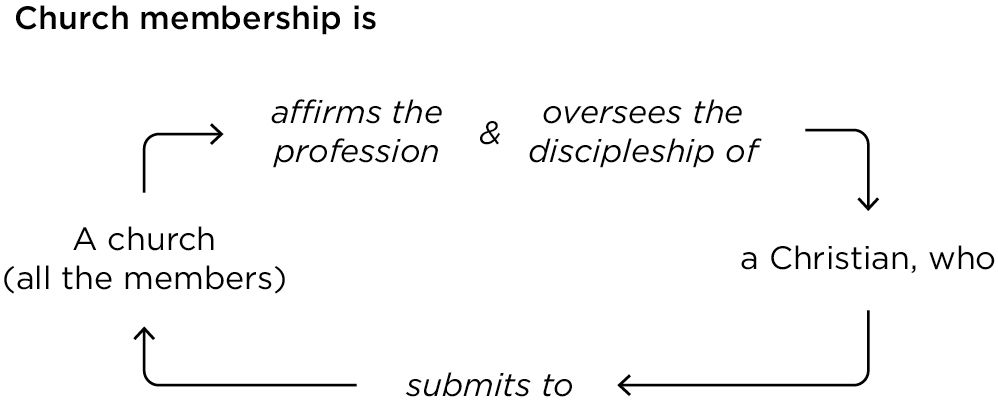
The word submits is scary, perhaps especially when applied to the church. But it must be said. When you become a church member, youre not just submitting to the leaders or the institution in some vague bureaucratic sense. Youre submitting to a family and all its members. Its your way of saying, This is the particular group of Christians Im inviting into my life and asking to keep me accountable for following Jesus . Im asking them to take responsibility for my Christian walk. If Im discouraged, its now their responsibility to encourage me. If I stray from the narrow path, its their responsibility to correct me. If Im in dire financial straits, its their responsibility to look after me.
Yet this commitment goes both ways. In asking the other members of the church to look out for you, you also are promising to look out for them. You are now a part of the church on the left side of the figure above, which is affirming and overseeing others. Well come back to this point in a moment.

